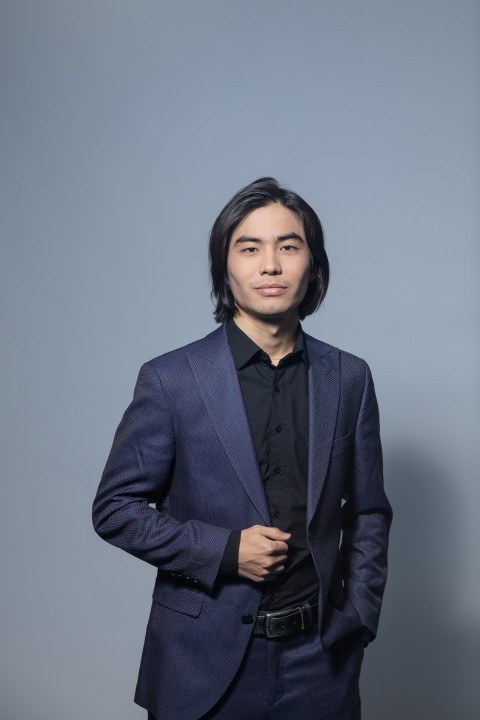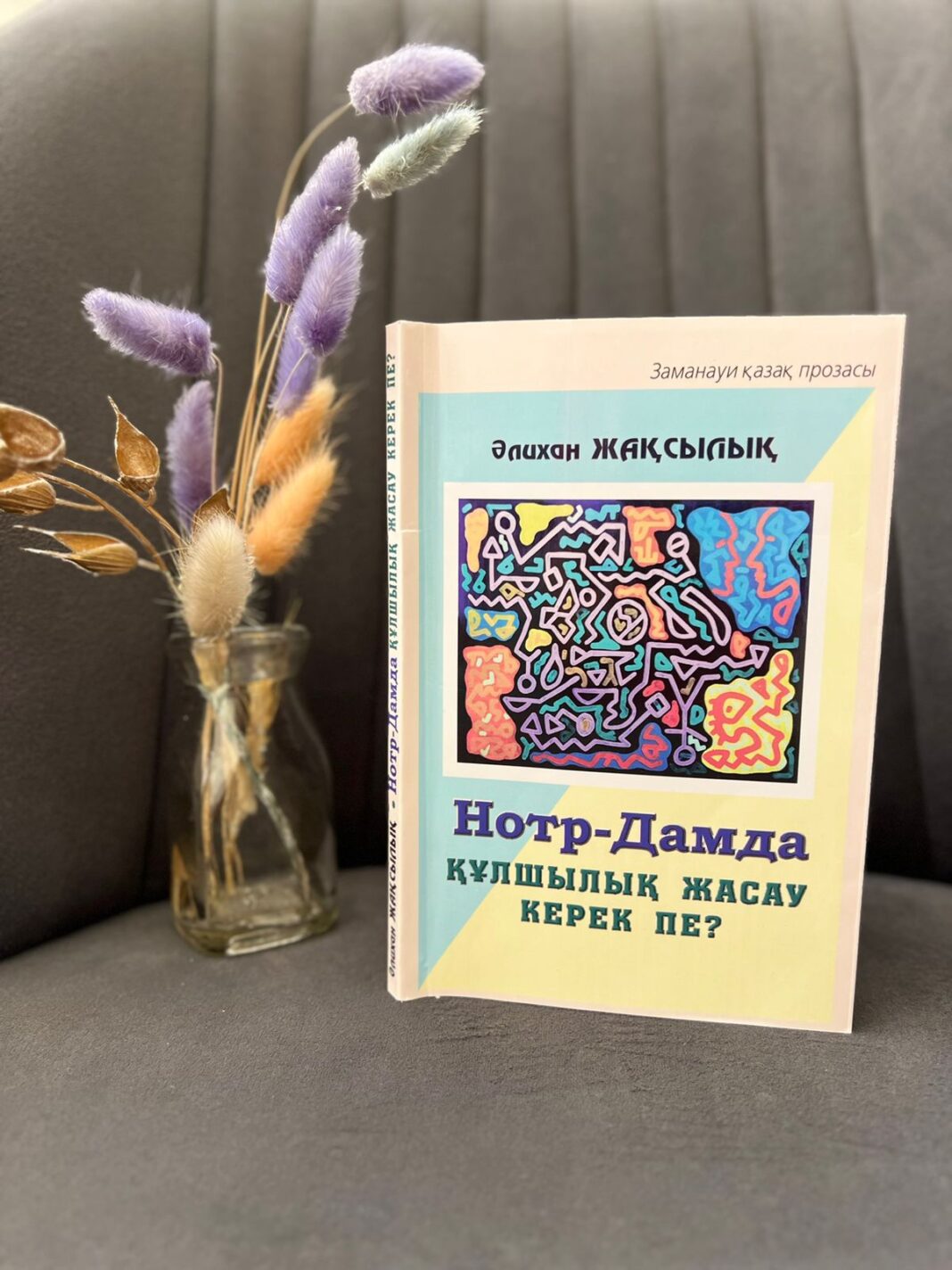In the world of literature, there are always those who are not afraid to go beyond the boundaries and create works that affect the worldview of the reader. Alikhan Zhaksylyk, a young writer from Aktobe, is one such author. Alikhan’s work not only reflects his unique view of the world, but also encourages readers to reflect and self-knowledge.

DN: Alikhan, please tell us about the beginning of your creative path. How did the world of literature open its doors to you?
AZ: I think it all started with works of Japanese, European and Latin American literature. The authors of these countries were once my main source of inspiration. When I was 19 years old, I first tried to write some fiction stories, many of which were in the fantasy genre. But I strive to bring novelty to literature, not to follow in the footsteps of the past.
My first such work was Loneliness in Tamuk. This story found a great response among writers and readers, to which I am very grateful. It tells the story of people who have become completely accustomed to artificiality – so much so that they soon begin to turn parts of their bodies into iron and become half-robots. Soon this tragically leads to the complete loss of all their human senses.
And when there seems to be no way out of this empty monochrome world, literature and art come to the aid of mankind. The feelings of the protagonist are reawakened when he listens to the legendary works of Mozart and Beethoven and begins to read the thoughts of the philosophers of the Renaissance. And even though the scale of these feelings frightens the protagonist, he tries his best to bring them back.
DN: What can you say about the first book you ever wrote? What feelings did you have while writing it?
AZ: My first book will always be the most special to me. It’s called Six Continents and it’s about five scientists from Mexico, Austria, Egypt, Great Britain, and Kamchatka, trapped on one island. In the story they discuss the values of each continent, and their goal is to uncover big problems in the world and expose international terrorist organisations. As I later learnt, this piece proved difficult for many of my readers because here I was using scientific terminology and addressing historical facts.
DN: What genres do you most enjoy writing in?
AZ: It’s hard to say, I don’t choose one genre in particular when I start writing a book. I write what I feel like writing. It’s usually readers and writers who judge what genre my work belongs to.
Even though I don’t stick to a particular genre, I really enjoy fantasising, being weird, writing outside the box and breaking boundaries. If you know what name to give to such a “genre”, I don’t mind.
DN: What about the main characters in your books? Do they have prototypes?
AZ: My characters are the people around me. Ordinary scientists, readers who don’t want to hurt anyone, and little people. I enjoy writing about both new values and values that need to be re-examined in society. I don’t like the old styles of past centuries because I believe literature should always be renewed and transformed. So I take some of my characters from my imagination, but I don’t add epic, pathos and heroic directions to them. I make a great effort to make them as realistic as possible, preferring to stay away from typical images.
DN: Tell us about your recently released book, what is it about? Is there anything you would like to convey to your readers through this story?
AZ: My novel, which was recently published, is called “Should We Worship at Notre Dame?”. It tells the story of a society in which certain authors are banned from reading. You can read, buy and give books, but it is a crime to analyse what you read. The works of such authors as Karen Armstrong, Stephen Hawking, Ernst Gombrich are banned. So, in my novel, I wanted to reflect the struggle between old and new values.
Each of the characters in “Must Worship at Notre Dame?” hopes for a brighter future and does everything they can for the sake of the coveted freedom.
Of course, there are so many things I would like to express and convey in this piece. But I think the main idea after reading will be clear to absolutely every reader. I also note that in the book there is an open condemnation of humanity, raising the problems of wars, genocide and other global topics.

– Sounds like a very serious piece of work that took a lot of effort and time. Did the writing process take a long time?
– Indeed, I collected materials for the book for several years and read a lot of literature. But it took me six months to write it. There were a lot of difficulties, but I enjoyed the process.
– What are your plans for the near future? Are you already planning to release a new book?
– At the moment I have already started a new book, which will be called From Africa to Alaska. It’s a novel about marathon runners from around the world who travel from Africa to Alaska on foot. Through the route of the travellers, I show the history of humanity, the present and the future walking side by side. All thoughts are conveyed through the thread of the story and the actions of the characters. I myself do not yet know how this novel will turn out or what quirks it will have this time around. For now, I am still in the writing process.
– And lastly, please give some advice for aspiring writers.
– For those who want to become a writer and create their own worlds, I would advise them not to listen to authors older than you and people who supposedly see your work better than you. Trust me, you are a unique individual and no one knows what light burns deep in your heart. Head towards human values and stay away from the old ways!


